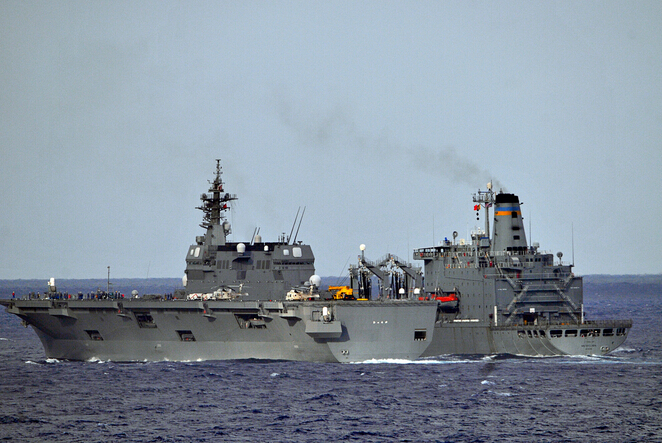I. Introduction
The ocean, which accounts for about 71% of the earth’s surface area, contains abundant resources. Exploiting and utilizing the ocean has become one of the directions of people’s efforts for many years. However, seawater is corrosive because it contains about 3.5% salt. In addition, some biological pollution in the ocean also accelerates the corrosion of seawater.
Titanium is a material with excellent physical properties and stable chemical properties. Titanium and its alloys have high strength, low specific gravity, seawater corrosion resistance and marine atmospheric corrosion resistance, which can well meet the requirements of people in marine engineering applications. Titanium has been widely used in the fields of offshore oil and gas development, harbour construction, coastal power station, seawater desalination, ships, Marine Fisheries and ocean thermal energy conversion after years of efforts by the titanium industry and marine engineering application researchers. At present, titanium for marine engineering has become one of the main fields of titanium civil applications.
II. Application Status
2.1 Offshore Oil and Gas Development
Oil is the lifeblood of a country’s economy. It is estimated that the world’s recoverable oil reserves are 300 billion tons, of which the seabed oil reserves are about 130 billion tons. The development of offshore oil began in the early 20th century. Its development has gone through a process from offshore to distant sea, from shallow to deep sea. Restricted by technological conditions and material development, oil and gas deposits extending directly from coast to shallow sea can only be exploited at first. Since the 1980s, stimulated by the energy crisis and technological progress, offshore oil exploration and development has developed rapidly, offshore oil development has rapidly advanced to the continental shelf, and a brand-new offshore oil industry has gradually formed. Offshore drilling platform is the base of offshore oil and gas exploration and exploitation, which marks the level of offshore oil and gas development technology. Offshore oil production equipment mainly includes oil production platform and ancillary equipment. The ancillary equipment includes crude oil cooler, oil lift pipe, pump, valve, joint and fixture, etc. These devices are in contact with sulfide, ammonia and chlorine in seawater and crude oil. Because of the excellent corrosion resistance of titanium in these media, the offshore oil platform pillars made of titanium were used in American oil fields in the early 1970s, and tubular heat exchangers and plate heat exchangers were made of titanium. Titanium tubular heat exchanger uses seawater as cooling medium to cool high temperature steam/oil mixture extracted from oil wells. Titanium plate heat exchanger also uses seawater as cooling medium to cool fresh water of crude oil in carbon steel heat exchanger. About 100 titanium heat exchangers have been used on drilling platforms in the North Sea Oilfield in the United States. The titanium components ordered by Hunting Oilfield Services in Aberdeen, Scotland, are said to be the first titanium high-pressure riser shaft in the world to be used in the Heidrum project of Conoco Norway.
Titanium drilling pipe has a long service life, its weight is only half that of stainless steel, but its flexibility is twice that of stainless steel, and its service life is 10 times that of steel. These excellent properties make titanium an excellent material for drilling near-circular and deep wells with great difficulty. The combined drilling tool with titanium drilling pipe can greatly reduce drilling time and total drilling cost. Grant Prideco, RTI Energy Systems and Torch Drilling Services in the United States first used titanium drilling pipes for industrial applications in 2000. The titanium drilling pipes manufactured and supplied by Grant Prideco and RTI Energy Systems are also equipped with steel tool joints provided by Grant Prideco Anti-fatigue Company. The joint is light in weight, flexible in use and can make the titanium drilling pipe strong.
Seawater pipeline system is an indispensable part of offshore oil exploitation. Because titanium has high corrosion resistance to seawater and its service life is 10 times that of steel system, the cost of titanium pipeline system is comparable to that of Cu-Ni system. Activated Metals Co. of America and Precision Tube Technology Co. Ltd. have jointly established a titanium tube technology company to produce a large-caliber titanium alloy tube. The alloy used in this kind of pipe is Ti-3Al-2.5V alloy with a diameter of 650mm, a wall thickness of 22-25mm, a length of 350m and a weight of 80-90t. It is planned to be used in offshore oil exploitation. Another U.S. company has made nearly 500 m long vertical shaft tubes by extruding seamless titanium alloy tubes with length of 15 mm, outer diameter of 600 mm and wall thickness of 25 mm, which have been used in an offshore drilling platform. It is said that the weight of the shaft pipe can be reduced by half, thus greatly reducing the ballast cost. In addition, it has high fracture toughness and long fatigue life.
It is reported that in the North Sea Oilfield Development Project in the United States, the amount of titanium used for floating structures and seabed fixtures on ships has increased compared with before. The demand for titanium for 24 floating bodies and 64 seabed fixtures is 50-100t for safety protection devices, 50-100t for connecting devices, 400-1000t for general lifting equipment and 1400-4200t for drill pipes. The corrosion of structural parts caused by biological pollution of offshore oil exploitation platforms is quite serious. A company in the United States has used a long casing made of titanium tubes to protect the parts on the platforms.
In the past few years, the application of titanium alloy components in oil drilling and coastal production has increased significantly. Titanium alloy components allow oil drilling to enter deeper waters and deeper wells, including higher temperatures and more corrosive (i.e., multi-salt) production environments.
For such applications, Ti-6Al-4V based alloys are the most suitable and the lowest cost considering their comprehensive properties. Seawater pipeline system is an indispensable part of offshore oil exploitation.

